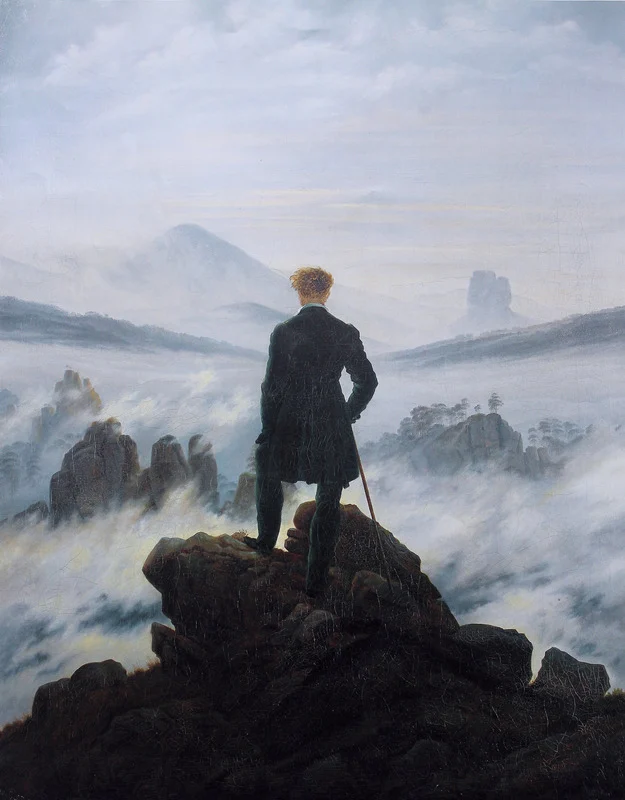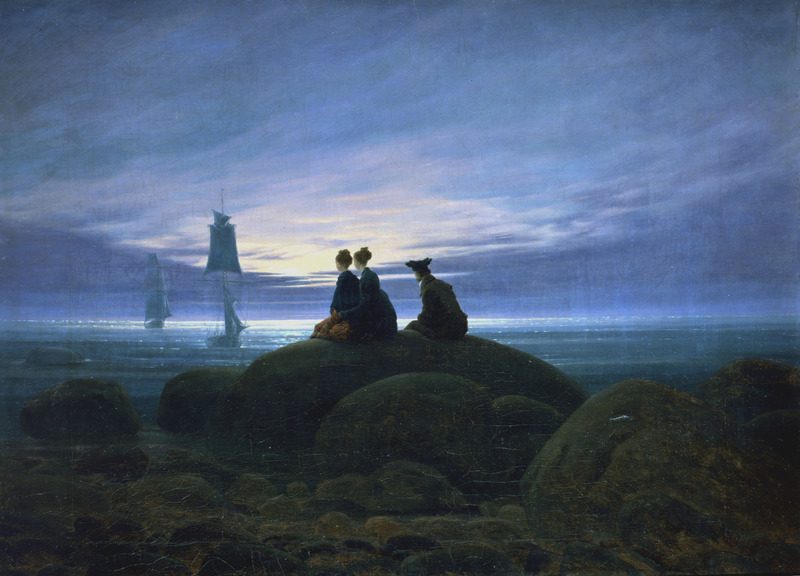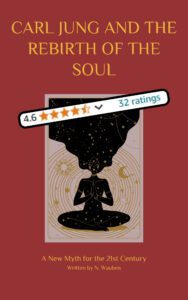Table of Contents
Introduction
In his book the Gay Science (a book not related to sexual orientation); Friedrich Nietzsche famously proclaimed the death of God. Friedrich Nietzsche wrote: “God is dead; but given the way of men, there may still be caves for thousands of years in which his shadow will be shown – and we – we still have to vanquish his shadow, too.” (p.167)
This idea of the death of God is one of the most well-known ideas of Nietzsche. Sadly, however, it is, as many other of Nietzsche’s ideas, often misinterpreted. In this article I will discuss why it is easy to misinterpret this idea, and what the correct interpretation should be. I will also analyse the wider implications of the proclamation of the death of God by Friedrich Nietzsche, as well as the possibility of a rebirth of God.
Friedrich Nietzsche – The Death of God
Friedrich Nietzsche observed that the idea of the existence of God was losing its momentum. Although God did therefore not die, according to Nietzsche, in a physical science, God died in a spiritual sense. This phenomenon resulted from several scientific and social developments.
As discussed throughout several other articles, Friedrich Nietzsche was not the biggest proponent of religion. Throughout his works Nietzsche criticised religion heavily, most notably for inciting a herd instinct among humanity based on the false idea that there exists a universal morality, a pre-existing good and evil. Religion, according to Nietzsche made men believe that they were sinful, and thereby made them docile and resentful towards their existence on this planet: “Inasmuch as it says, ‘God sees into the heart of man,’ it says nay to the profoundest and most superior desires of life and takes God as the enemy of life. The saint in whom God is well pleased is the ideal eunuch. Life terminates where the ‘Kingdom of God’ begins.” (Twilight of the Idols, p.27)
The Death of God as a Victory
As a result, when Nietzsche proclaimed that God had died, it appears logical to believe that this death of God can be seen as some sort of victory over the evil forces of religion. Nietzsche himself initially also hinted that this was a positive development because of the freedom which the death of God would create for humanity: “We have left the land and have embarked. We have burned our bridges behind us – indeed, we have gone farther and destroyed the land behind us […] hours will come when you will realize that it is infinite and that there is nothing more awesome than infinity.” (p.180)
If one were to read only this passage, one might indeed believe that Nietzsche considered the death of God as some sort of victory. This believe would, however, be false. Although the death of God resulted in infinite possibilities and a significant degree of freedom, Nietzsche observed that this was a horrible development, because it completely removed all the foundations from the reality of humanity: “Oh, the poor bird that felt free and now strikes the walls of this cage! Woe, when you feel homesick for the land as if it had offered more freedom – and there is no longer any “land”. (p.181) As a result, Nietzsche appears to indicate that the death of God was problematic because there was nothing to replace the idea of God with.
The True Realization / The Madman
In his passage ‘The Madman’, found within the Gay Science, Nietzsche used the story of a madman to illustrate the far-reaching consequences of the death of God. Nietzsche even observed that it was man himself who had killed God. Nietzsche illustrated that man slowly came to the realization of what he had done: “The madman jumped into their midst and pierced them with his eyes. “Whither Is God?” he cried; “I will tell you. We have killed him – you and I. All of us are his murderers.” (p.181)
The madman in this story questioned how man could have decided to kill God and from where they received such powers: “But how did we do this? How could we drink up the sea? Who gave us the sponge to wipe away the entire horizon? What were we doing when we unchained this earth from its sun?” (p.181) At the same time, the madman indicated that, by unchaining this world from the sun (God), we are floating aimlessly through space, aimlessly through life:
“Whither is it moving now? Whither are we moving? Away from all Suns? Are we not plunging continually? Backward, sideward, forward, in all directions? Is there still any up or down? Are we not straying as through an infinite nothing? […] has it not become colder? Is not night continually closing in on us? […] God is dead. God remains dead. And we have killed him.” (p.181)

The Greatest Deed
Friedrich Nietzsche argued that there was no way for us to comfort ourselves with the realization that we are the murderers of God: “How shall we comfort ourselves, the murderers of all murderers? What was the holiest and mightiest of all that the world has yet owned has bled to death under our knives: who will wipe this blood off us? […] What festivals of atonement, what sacred games shall we have to invent? (p.181) Nietzsche questioned, whether we, by murdering God, should also not become gods ourselves. At the same time, in terms of the vastness of the implications, Nietzsche even termed the murder of God as one of our greatest deeds: “Is not the greatness of this deed too great for us? Must we ourselves not become gods simply to appear worthy of it? There has never been a greater deed.” (p.181)
Moreover, Nietzsche illustrated, through the story of the madman, that humanity is not yet capable to grasp the true implications of this deed:
“This tremendous event is still on its way, still wandering; it has not yet reached the ears of men. Lightning and thunder require time; the light of the stars requires time; deeds, though done, still require time to be seen and heard. This deed is still more distant from them than the most distant stars – and yet they have done it themselves.” (p.182)
Nietzsche claimed that, after the death of God, all religions and churches are merely graveyards of God: “What after all are these churches now if they are not the tombs and sepulchres of God?” (p.182)
In another book, Thus Spoke Zarathustra, Friedrich Nietzsche also pointed to the implication of the death of the idea of God. According to Nietzsche, the realization of the death of God resulted in the aimless wanderings of humanity: “O my brethren, is not everything at present in flux? Have not all railings and gangways fallen into the water? Who would still hold on to ‘good’ and ‘evil’?” (p.196)
The New (False) Idols
Throughout his book Thus Spoke Zarathustra, Nietzsche indicated that man attempted to fill the void, left after the death of God, with the admiration of several new idols. The state was one such new idol, according to Nietzsche. The state attempted to replace God by replacing God as the most important entity to exist: “’On earth there is nothing greater than I [the state]: it is I who am the regulating finger of God’ – thus roareth the monster […] Yea, it findeth you out too, ye conquerors of the old God!” (Thus Spoke Zarathustra, p.45) However, Nietzsche observed that the idea of the state would never be able to replace the meaning provided by the idea of God. Instead, it merely uses the idea of God to justify its actions: “The state, I call it, where all are poison-drinkers, the good and the bad; the state, where all lose themselves, the good and the bad; the state, where the slow suicide of all – is called ‘life’.” (Thus Spoke Zarathustra , p.46)
Another false idol, according to Nietzsche, was the life of the last man. A life characterized by several short meaningless pleasures, while all hardships have been eradicated. The last man are no longer capable to comprehend some of the most meaningful aspects of life, but they are still convinced of their own happiness: “’What is live? What is creation? What is longing? What is a star?’ So asketh the last man and blinketh […] His species is ineradicable like that of the ground-flea; the last man liveth longest. ‘We have discovered happiness,’ say the last men, and blink thereby.” (Thus Spoke Zarathustra , p.10) You can find more information about the idea of the last man here: The Last Man.

The Rebirth of God
After concluding that the idea of God had died, and realizing the impact the death of God has on humanity, Nietzsche nostalgically looks back upon the times of our ‘old master’, ancient humanity. Nietzsche indicated that we can no longer comprehend the way in which ancient peoples understood their lives with the idea of God in their minds: “All experiences shone differently because a god shone through them. All decisions and perspectives on the remote future, too; for they had oracles and secret portents and believed in prophecy. “truth” was experienced differently, for the insane could be accepted formerly as the mouthpiece – which makes us shudder and laugh.” (p.197)
People behaved differently, according to Nietzsche, because one constantly lived with idea of God in their minds, therefore fear and joy were experienced differently: “Every wrong had a different effect on men’s feelings: for one feared divine retribution and not merely a civil punishment and dishonor. What was joy in ages when one believed in devils and tempters?” (p.197) Nietzsche, of course, was also not a big proponent of the implications which living with this idea of God had, however, he believed that, after eradicating this idea, we have not yet come up with something better: “We have given things a new color; we go on painting them continually. But what do all our efforts to date avail when we hold them against the colored splendor of that old master – ancient humanity?” (p.197)
The question that we may than ask is what we can come up with which can sufficiently compare to the idea of God. Is a rebirth of the idea of God or something of similar weight possible? “When will all these shadows of God cease to darken our minds? When will we complete our de-deification of nature? When may we begin to “naturalize” humanity in terms of a pure, newly discover, newly redeemed nature?” (p.169)
I believe that, for Nietzsche, the solution to the problems of the death of God could be found in the development of the overman (Übermensch), an individual who is capable of creating his or her own values of good and evil. An individual who, for the creation of these values, is not dependent upon either the old idols, God, or one of the new idols, the state, or the society of the last man. An individual who, therefore, is sufficiently independent to not need any idols at all.
I will explore this idea further in a future article. For now, it is also interesting to relate this idea of Nietzsche to the works of Carl Jung. In the introductory volume of the Black Books, the editor Sonu Shamdasani indicated that Friedrich Nietzsche, through his character Zarathustra announced the death of God. Carl Jung, though his writing of the Red Book and the Black Books, portrayed the rebirth of God within the soul: “Whereas Zarathustra proclaims the death of God, Liver Novus [the Red Book] depicts the rebirth of God in the soul.” (p.40)
Conclusions
There is a paradox present within Nietzsche’s idea of the death of God. As a result of this paradox Nietzsche’s idea of the death of God is easily misinterpreted. Nietzsche heavily criticised religion, however, as soon as people ‘murdered God’ by no longer believing in Him, and thereby becoming less religious, Nietzsche saw this as a dangerous development. This is mainly the case, however, because there is nothing to replace the idea of God with. All we have are false idols, not capable of filling the void. Therefore, resulting from us murdering God, we are left in a state of aimless wandering. In this sense it is possible to argue that Nietzsche believed that humanity was not yet capable to live without God, i.e., the death of God came to soon for humanity: “This deed is still more distant from them than the most distant stars – and yet they have don it themselves.” (The Gay Science, p.182)

